 |
 |
 |
|
This
is a short translation from the Swedish site.
|
 |
 |
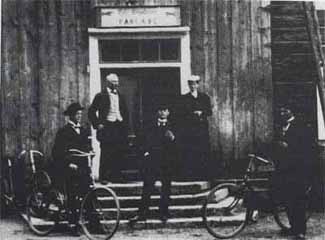 |
 |
|
Here
is Carl Eric Högbergs dye-farm at Emaus, the photo was taken 1910,
from left to right: Axel Ericsson, Emaus Johan Jansson, ?, Klara Lena,
Emaus Johan Johansson.
The pattern on each side is made by Carl Eric Högberg. |
||
|
Carl Eric was born September 26, 1830 in Lilla Mellösa. He came to Emaus around 1865 from Hedemora. |
|
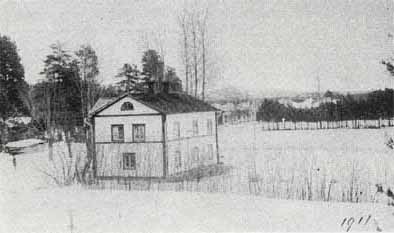 He bought the house "Emaus-estate" from Nils Dofsén year 1865. It was here he started his first and only dye-works in Jerna, Dalarna Sweden. (1911) 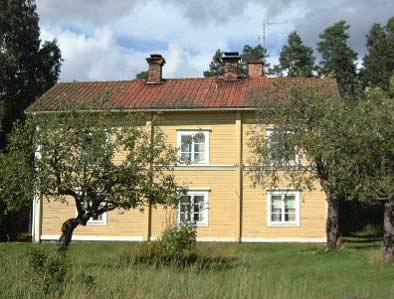 The house was builden at 1728 and today, August 5, 2001 it is the same house at the same place.
|
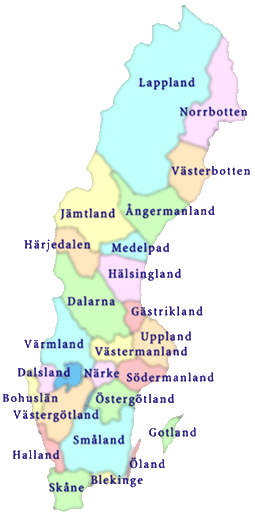 |
 |
 |
 |
 |
|
The
picture to the left is Carl Eric Högberg then Morling Johan Andersson,
Morling Anders Olsson, Emaus Johan Jansson, Munters Erik Anderson.
The picture is probably from 1886.
The other three pictures shows the same place at present time, Aug 5,
2001, where Lars Olars believe "Stampen" was situated from the very
beginning of the 1800.
|
|||
|
|
|||
|
This is an old Picture from the years 1880-1885 |
|||
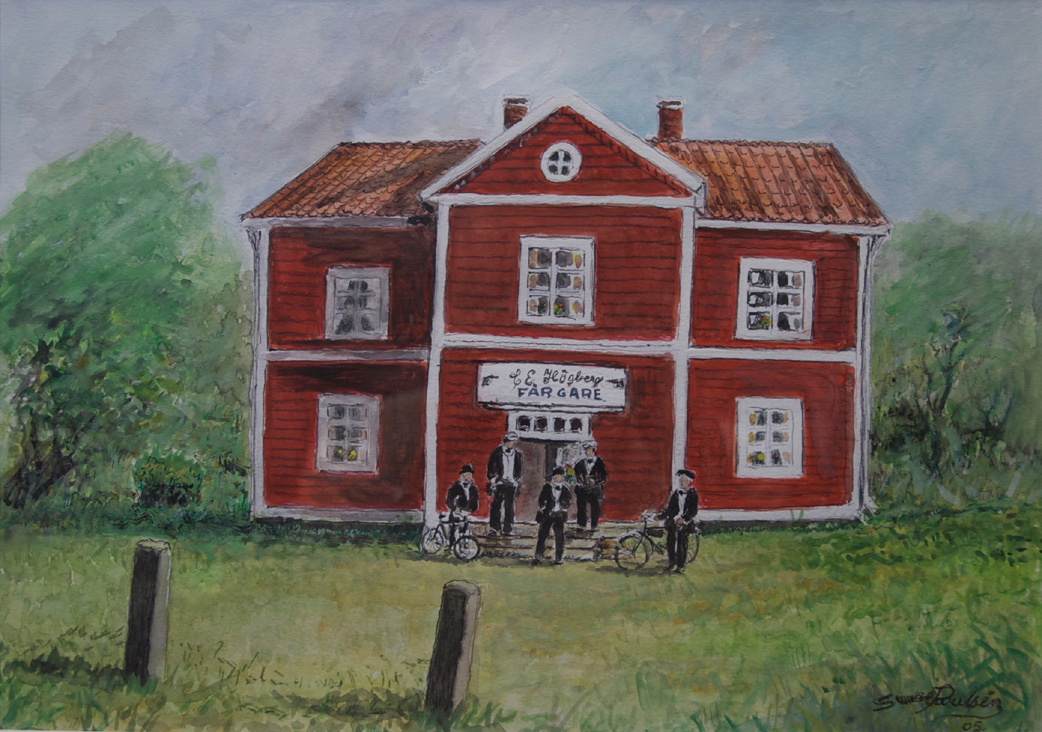 |
|||
|
This is
a new painting picture from Anns dad Sune Paulsén year 2005,
it's a mix from the old house and the house 2001
Probably is the building from 1728 |
|||
|
Carl Eric
was married twice, in the first marriage with Sofia
Leontina Eriksson he got 6 children and four of them emigrated to
USA, Eric Ernst, Anna Leontina,
Claes Johan and Hilda Sophia.
One of the children, Eric Ernst Högberg has I found with help from
Gayle Ann Hoberg DeRosia read about him
at the site Eric and his son Waldos
story, very interresting!!! I receive Waldos story from Gayle, which
is my grandfathers paternals grandsons daughter to me,Tommy Christer
Högberg... Note, farmhand at Emaus-estate was Anders Magnus Högberg, born in Sköldinge and he was the son of Johan Anders Högberg, and brother to Carl Eric Högberg. |
|
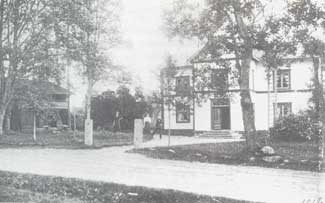 |
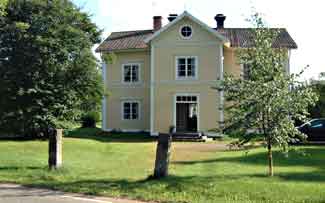 |
| Emaus estate was renovated 1910 and provided with panel. To the left in the picture you can see the little store, well we think so! | Emaus estate today, 2001, also renovated, but very slowly and careful with little change, because they want to keep the house its original shape, as far as possible. |
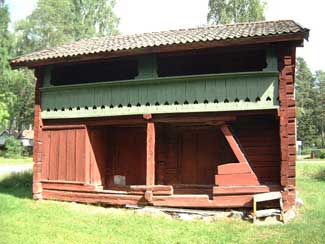 |
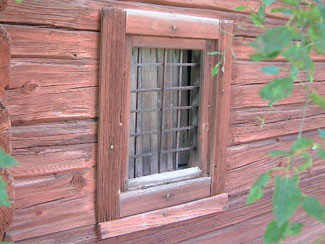 |
| The left wing with iron bar windows could be the first store in Järna. For sure is that D.A. Böhlmark leased the land to Anders Petter Zettervall in 1856, he was the first official registered shopkeeper at Emaus. | |
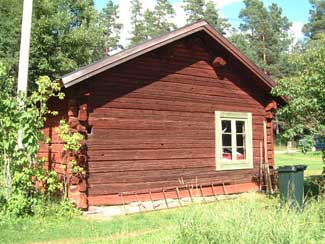 |
 |
| Photo to the left: a small barn next to the farmhouse, this was a brewery and rumor tells us it was also used to distill "snaps spirits". In land surveyor "Craelius´chronical" over Nås-parish he points out that before 1835 no snaps distillery existed in the whole "Västerdalarna" region, but that a "hell machine" was recently installed in the neighboring area. Suspicion that it was at Emaus is well-founded... | |
|
The dye-shop operation The
dye-shop operation was the more exciting line of business run in the
village Emaus. C. E. Högberg was even mentioned in the countycalenders
of 1882 and 1893 as a dye-trader in the Järna area, this was not common
practice in those days. Carl Erik Högberg, born 1830 in L. Mellösa moved to Emaus 1865 from southern Dalarna along with his wife Sophia Leontina, born 1837, and their three children born in Arboga, Norberg and Hedemora. The dye-shop was installed right after that and in the beginning of 1880 Carl Erik Högberg got permission from the mill-organization to build a millstone on the western side of the river. Dye-keeper
Högberg probably didn´t experience any problems to establish the business
since the new freedom of trade was introduced in 1864. The old law from
1846 had some serious restrictions in this area. The new freedom of
trade made it possible for many others to start dye- shop businesses
in the countryside. Year 1861 there were 461 dye-shops in Sweden according
to A. Alzén. The trade was now considered to be a little over established.
The dye-shop at Emaus had a competitor at close range; C. W. Amberg
dye-shop in Hosåker, Dala-Floda.
|
 |
|
|
This
is Carl Eric Högbergs signature
|
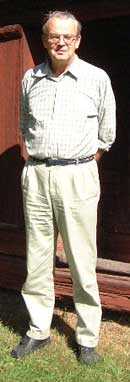
|
Lars Olars
has written the book "Emaus i våra
hjärtan"
In that very interesting book you can read more about "The Högberg's in Emaus", but unfortunately the book is sold-out. However, Lars Olars is working on a new project with dialects and hopefully the book is ready in time for it to be a christmas gift! The name of the book is "ORDA-LÄNGD över JÄRNAMÅLET" together with a sound cassette. |
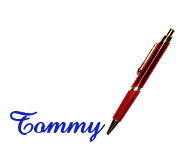
Created
3/9/2001 3:45 PM by tommy.hogberg![]() gmail.com
and DISGEN version 8.1bc
gmail.com
and DISGEN version 8.1bc
![]()
Copyright © 2019 The Hogberg´s


